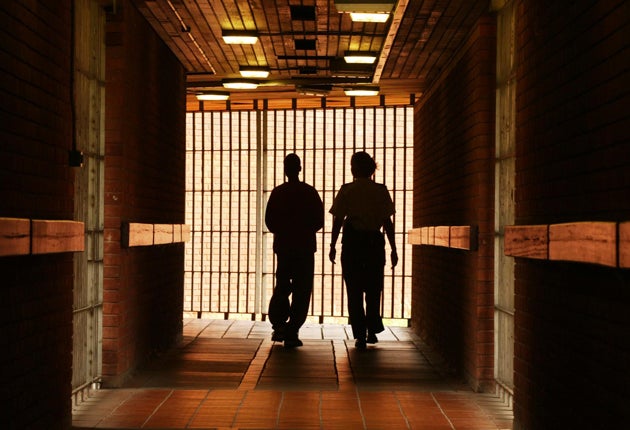Future to focus on rehabilitation for torture brothers
Boys likely to serve sentence in secure children's home

Support from psychologists and specialist social workers. Twenty-five hours a week of education. A life away from the alcohol, cannabis and violent films that characterised their troubled early years.
Yesterday as the two young boys in the Doncaster torture case awoke to the certain prospect of a lengthy sentence for their barbaric crimes, experts said the next few years of their life had to be as much about rehabilitation as punishment. They will get help from myriad agencies and professionals who will take responsibility for the future of the brothers, aged 11 and 12, to hopefully stop them from reoffending.
Today the boys' childhood home, a council house in an anonymous suburb of Doncaster, is boarded up. Their mother was moved by the local authority for her own protection when the first allegations were levelled against the second and third youngest of her seven sons.
Neighbours believe the mother and her five other sons are living in a caravan on the Yorkshire coast. Their father, who lived seven miles away in Edlington where the two boys – already on the child protection register – were placed with foster parents when they committed their crimes, has not been seen since.
Future contact between parents and offspring, both of which will be protected by lifelong anonymity in the media, will depend on the judgement of social workers compiling pre-sentence reports. They must decide whether visits will help the boys come to terms with their offending and speed their passage back into society.
The brothers are being held at separate secure children's homes and are likely to stay within these highly specialised environments for the duration of their sentence due to be handed down at Sheffield Crown Court in October.
Although a maximum sentence of life imprisonment will be available to the court – and despite the sense of public outrage following their admission of grievous bodily harm with intent – it seems unlikely the judge will impose more than the eight years served by their most notorious predecessors.
Jamie Bulger's killers Jon Venables and Robert Thompson were released from their secure children's home accommodation in 2001 following sweeping criticism of their trial and treatment by the European Court of Justice. The Bulger case led to reforms in British law that made it easier for children as young as 10 to be found guilty of serious crimes by removing the need to prove they were aware of the consequences of their criminal actions. But it also made increased the level of protection for the offenders.
Following sentence, the Doncaster youngsters' time in the so-called secure estate will be under the control of the Youth Justice Board (YJB). Younger more vulnerable offenders are normally sent – space permitting – to one of 15 secure children's homes run by local authority social services departments. Success rates for preventing re-offending among people who enter the system at a very young age are high, experts believe.
Barnardo's assistant director of policy Pam Hibbert explained: "When you have young children who commit these serious offences they tend to have a background of neglect and abuse. But it is very clear if you look at the history of the other notorious cases they actually tend not to go on to commit further offences on their release."
There are currently 165 young people serving sentences in secure children's homes out of a total of 2,500 offenders under the age of 18 in prison. Most are sent to young offenders institutions which are modelled more closely on adult prisons. Although the option of transfer at the age of 15 will be available, it is likely the brothers will remain in children's homes where they will benefit from 25 hours a week of education, the support of a key worker, psychologists and the possibility of a phased return back into the community towards the end of their sentence.
Peter Minchin, head of placement at the YJB, said: "The idea is to make a positive impact on young people, particularly the very youngest ones. These institutions are set up to work specifically with young people who have holistic needs not just offending ones. Our responsibility is to make sure they go into the most appropriate placement that meets these needs."
Inmates benefit from a high staff ratio, with the smallest establishment having five beds and the largest, at Aycliffe in Co Durham where the child killer Mary Bell was held, having 36. As in the Venables-Thompson case the media will be forbidden from identifying where the brothers are being held.
The YJB sets out to maintain family links where possible and to locate young people close to their communities where appropriate. It will meet the costs of a weekly visit for up to two adults and their children and pay for childminders. The board also pays a contribution to overnight accommodation and meals where necessary.
But experts yesterday pointed out that the brothers' case remained rare and that many staff would not have experience in dealing with such serious offenders. Jackie Worrall, director of policy and public affairs at the offender's charity Nacro said: "It will be a number of years before they are back in the community and they will be not be children any more – teenagers or possibly adults. It is so unusual for children of this age to be involved in such an offence so we are left speculating what issues they are going to face."
